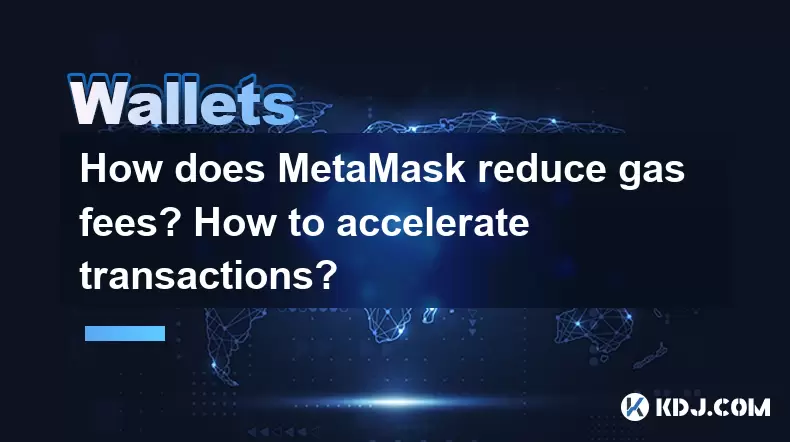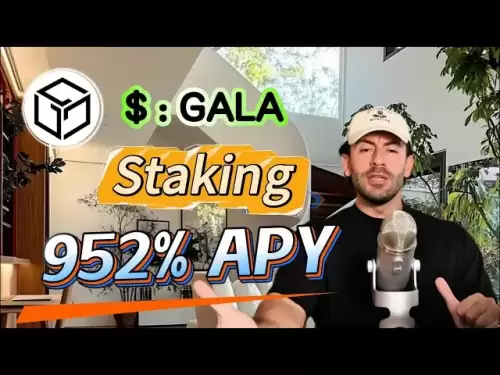-
 Bitcoin
Bitcoin $114500
-0.31% -
 Ethereum
Ethereum $3648
1.11% -
 XRP
XRP $3.033
-0.27% -
 Tether USDt
Tether USDt $0.9999
-0.01% -
 BNB
BNB $758.5
-0.32% -
 Solana
Solana $167.5
1.48% -
 USDC
USDC $0.9998
-0.02% -
 TRON
TRON $0.3331
0.74% -
 Dogecoin
Dogecoin $0.2039
0.25% -
 Cardano
Cardano $0.7419
-0.46% -
 Hyperliquid
Hyperliquid $39.21
2.66% -
 Stellar
Stellar $0.4049
-1.95% -
 Sui
Sui $3.483
-0.56% -
 Bitcoin Cash
Bitcoin Cash $570.8
2.89% -
 Chainlink
Chainlink $16.67
-0.57% -
 Hedera
Hedera $0.2470
-1.57% -
 Ethena USDe
Ethena USDe $1.001
0.00% -
 Avalanche
Avalanche $22.36
1.52% -
 Litecoin
Litecoin $123.4
4.35% -
 UNUS SED LEO
UNUS SED LEO $8.989
0.09% -
 Toncoin
Toncoin $3.324
-2.40% -
 Shiba Inu
Shiba Inu $0.00001219
-1.30% -
 Uniswap
Uniswap $9.811
2.54% -
 Polkadot
Polkadot $3.662
-0.07% -
 Monero
Monero $295.5
-3.85% -
 Dai
Dai $1.000
0.01% -
 Bitget Token
Bitget Token $4.345
0.24% -
 Cronos
Cronos $0.1380
0.95% -
 Pepe
Pepe $0.00001044
-1.14% -
 Ethena
Ethena $0.5981
-4.24%
How does MetaMask reduce gas fees? How to accelerate transactions?
MetaMask helps reduce Ethereum gas fees with gas estimation and price suggestions, while accelerating transactions via increased gas prices and Layer 2 solutions.
May 11, 2025 at 01:35 pm

Introduction to MetaMask and Gas Fees
MetaMask is a popular cryptocurrency wallet that allows users to interact with the Ethereum blockchain and other Ethereum-compatible networks. One of the significant concerns for users when transacting on these networks is the cost of gas fees, which are the fees required to process transactions on the blockchain. Reducing gas fees and accelerating transactions are crucial for enhancing user experience and efficiency. This article will delve into how MetaMask helps reduce gas fees and the steps users can take to accelerate their transactions.
Understanding Gas Fees on Ethereum
Gas fees are payments made by users to compensate for the computational energy required to process and validate transactions on the Ethereum network. These fees fluctuate based on network congestion and the complexity of the transaction. High gas fees can be a barrier for users, especially during periods of high demand on the network.
How MetaMask Reduces Gas Fees
MetaMask provides several features designed to help users manage and reduce their gas fees. One of the primary ways MetaMask achieves this is through its gas estimation and gas price suggestion tools. When a user initiates a transaction, MetaMask automatically calculates an estimated gas fee based on current network conditions. This helps users avoid overpaying for transactions.
- Gas Estimation: MetaMask uses algorithms to predict the gas needed for a transaction to be processed. By providing an accurate estimate, users can set a more precise gas limit, preventing unnecessary expenditure.
- Gas Price Suggestion: MetaMask suggests a gas price that balances speed and cost. Users can choose from different levels of urgency, such as 'slow', 'average', or 'fast', which correspond to different gas prices.
Additionally, MetaMask allows users to manually adjust gas settings. This feature is particularly useful for advanced users who want to fine-tune their transactions for optimal cost and speed.
Accelerating Transactions with MetaMask
While reducing gas fees is important, sometimes users need to accelerate transactions to ensure they are processed quickly. MetaMask offers several methods to speed up transactions:
Increasing Gas Price: If a transaction is taking too long, users can increase the gas price to incentivize miners to process it faster. To do this, follow these steps:
- Open MetaMask and go to the 'Activity' tab.
- Find the pending transaction and click on the 'Speed Up' button.
- Adjust the gas price to a higher value and confirm the transaction.
Using Priority Gas: MetaMask also allows users to set a priority gas fee, which is an additional fee that can be used to expedite transactions during high network congestion. To set a priority gas fee:
- When initiating a transaction, click on 'Edit' next to the gas fee.
- Adjust the 'Priority Fee' to a higher value to prioritize your transaction.
Leveraging Layer 2 Solutions: MetaMask supports integration with Layer 2 scaling solutions like Optimism and Arbitrum. These networks process transactions off the main Ethereum chain, significantly reducing gas fees and speeding up transaction times. To use Layer 2 solutions:
- Add the desired Layer 2 network to MetaMask by clicking on the network dropdown and selecting 'Custom RPC'.
- Enter the network details provided by the Layer 2 solution.
- Switch to the Layer 2 network and conduct transactions as usual.
Best Practices for Managing Gas Fees and Transaction Speed
To effectively manage gas fees and transaction speed, users should follow these best practices:
Monitor Network Conditions: Use tools like Etherscan to check the current gas prices and network congestion. This information can help you decide the best time to conduct transactions.
Batch Transactions: When possible, combine multiple transactions into a single one to save on gas fees. This is particularly useful for smart contract interactions.
Use Gas Tokens: Gas tokens like Chi can be used to 'refund' a portion of the gas fees. To use gas tokens:
- Purchase Chi tokens from a decentralized exchange.
- Use a compatible dApp to 'mint' Chi tokens into gas credits.
- When conducting a transaction, the gas credits will automatically be used to reduce the gas fee.
Stay Updated: Keep MetaMask updated to the latest version, as new features and improvements are regularly added to enhance user experience and efficiency.
Advanced Techniques for Gas Fee Optimization
For users looking to further optimize their gas fees, there are advanced techniques that can be employed:
Gas Price Oracles: Utilize external gas price oracles like EthGasStation to get more accurate gas price predictions. These oracles can be integrated into MetaMask through custom scripts or extensions.
Transaction Batching: Some smart contracts allow for batching multiple operations into a single transaction. This can significantly reduce the total gas cost. To batch transactions:
- Identify smart contracts that support batching.
- Use a compatible dApp or write a custom script to batch your transactions.
- Execute the batched transaction through MetaMask.
Gasless Transactions: Some platforms support gasless transactions, where the gas fee is paid by the platform or another party. To use gasless transactions:
- Identify dApps that support gasless transactions.
- Connect your MetaMask wallet to the dApp and follow their specific instructions for gasless transactions.
Frequently Asked Questions
Q: Can I use MetaMask to reduce gas fees on other blockchains besides Ethereum?
A: MetaMask primarily focuses on Ethereum and Ethereum-compatible networks. While it supports some other blockchains like Binance Smart Chain, the gas fee reduction features are most effective on Ethereum and its Layer 2 solutions.
Q: What happens if I set the gas price too low in MetaMask?
A: If you set the gas price too low, your transaction may take a long time to be processed or may not be processed at all. It's important to balance the gas price with the urgency of your transaction.
Q: Is it safe to use Layer 2 solutions with MetaMask?
A: Yes, Layer 2 solutions like Optimism and Arbitrum are designed to be secure and are widely used. However, always ensure you are using the official network details and follow best practices for securing your MetaMask wallet.
Q: Can I cancel a transaction in MetaMask if I set the gas price too high?
A: Yes, you can cancel a transaction in MetaMask if it is still pending. To do this, go to the 'Activity' tab, find the transaction, and click on the 'Cancel' button. You will need to pay a gas fee to cancel the transaction, but it will be lower than the original transaction fee.
Disclaimer:info@kdj.com
The information provided is not trading advice. kdj.com does not assume any responsibility for any investments made based on the information provided in this article. Cryptocurrencies are highly volatile and it is highly recommended that you invest with caution after thorough research!
If you believe that the content used on this website infringes your copyright, please contact us immediately (info@kdj.com) and we will delete it promptly.
- Uniswap Valuation Under the Microscope: Bitwise CIO's Perspective
- 2025-08-05 23:10:12
- Coinbase's $2 Billion Convertible Notes: A Bold Move or Risky Bet?
- 2025-08-05 23:10:12
- Inveniam, MANTRA, and Real-World Assets: Forging a New DeFi Frontier
- 2025-08-05 22:30:12
- Cyprus Investor's $448K Crypto Loss: An Email Hack Wake-Up Call for Crypto Exchanges
- 2025-08-05 22:30:12
- Solana Memecoin Mania: Trader Profit Secrets Revealed!
- 2025-08-05 20:30:13
- POL Price Rebound: Will Consolidation Lead to a Breakout?
- 2025-08-05 20:30:13
Related knowledge

How to add TRC20 token to Trust Wallet?
Aug 04,2025 at 11:35am
Understanding TRC20 and Trust Wallet CompatibilityTrust Wallet is a widely used cryptocurrency wallet that supports multiple blockchain networks, incl...

What is a watch-only wallet in Trust Wallet?
Aug 02,2025 at 03:36am
Understanding the Concept of a Watch-Only WalletA watch-only wallet in Trust Wallet allows users to monitor a cryptocurrency address without having ac...

Why can't I connect my Trust Wallet to a DApp?
Aug 04,2025 at 12:00pm
Understanding DApp Connectivity and Trust WalletConnecting your Trust Wallet to a decentralized application (DApp) is a common process in the cryptocu...

How to fix a stuck pending transaction in Trust Wallet?
Aug 03,2025 at 06:14am
Understanding Why Transactions Get Stuck in Trust WalletWhen using Trust Wallet, users may occasionally encounter a pending transaction that appears t...

What is a multi-coin wallet in Trust Wallet?
Aug 03,2025 at 04:43am
Understanding Multi-Coin Wallets in Trust WalletA multi-coin wallet in Trust Wallet refers to a digital wallet that supports multiple cryptocurrencies...

How to switch between networks in Trust Wallet?
Aug 02,2025 at 12:36pm
Understanding Network Switching in Trust WalletSwitching between networks in Trust Wallet allows users to manage assets across different blockchains s...

How to add TRC20 token to Trust Wallet?
Aug 04,2025 at 11:35am
Understanding TRC20 and Trust Wallet CompatibilityTrust Wallet is a widely used cryptocurrency wallet that supports multiple blockchain networks, incl...

What is a watch-only wallet in Trust Wallet?
Aug 02,2025 at 03:36am
Understanding the Concept of a Watch-Only WalletA watch-only wallet in Trust Wallet allows users to monitor a cryptocurrency address without having ac...

Why can't I connect my Trust Wallet to a DApp?
Aug 04,2025 at 12:00pm
Understanding DApp Connectivity and Trust WalletConnecting your Trust Wallet to a decentralized application (DApp) is a common process in the cryptocu...

How to fix a stuck pending transaction in Trust Wallet?
Aug 03,2025 at 06:14am
Understanding Why Transactions Get Stuck in Trust WalletWhen using Trust Wallet, users may occasionally encounter a pending transaction that appears t...

What is a multi-coin wallet in Trust Wallet?
Aug 03,2025 at 04:43am
Understanding Multi-Coin Wallets in Trust WalletA multi-coin wallet in Trust Wallet refers to a digital wallet that supports multiple cryptocurrencies...

How to switch between networks in Trust Wallet?
Aug 02,2025 at 12:36pm
Understanding Network Switching in Trust WalletSwitching between networks in Trust Wallet allows users to manage assets across different blockchains s...
See all articles

























































































